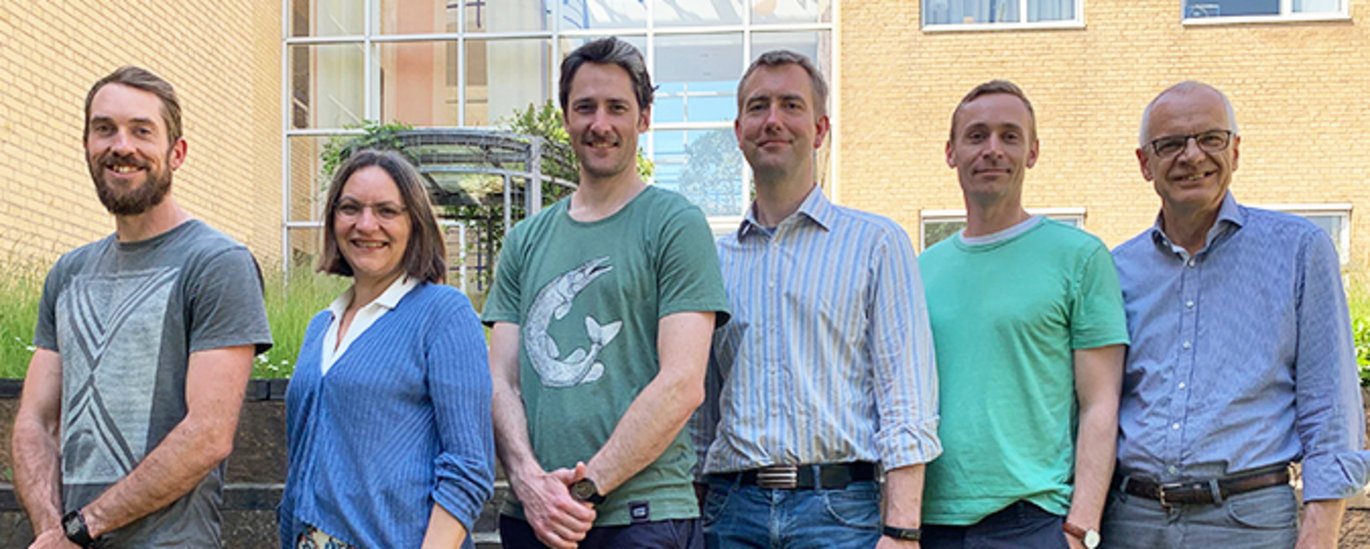An international research team receives EUR 27 million to develop more productive crops
As part of an international research team, plant researchers from the Department of Molecular Biology and Genetics, AU, have been awarded EUR 27 million (DKK 203 million) from the Novo Nordisk Foundation - of which EUR 6.7 million (DKK 50 million) goes to the plant researchers from Aarhus University. The research project aims at creating basic knowledge of plant interactions with the complex communities of microorganisms living in and around them. The ambition is to increase crop production and help ensure sufficient food for a growing world population by creating smarter and more sustainable agriculture based on biological methods.

In the near future, world food production will be challenged to deliver food to a growing population on a sustainable basis with a minimal environmental footprint on nature, and under changing climate conditions. New knowledge is needed on how plants benefit from the microbes surrounding them, and how this knowledge can later be translated into environment-friendly measures that increase food production and quality. Internationally, there is great interest and extensive research in the use of microbes, "biologicals", as a substitute for chemical agents for disease control and increase of plant growth, but a completely fundamental understanding of biology is lacking in order for it to succeed.
The Novo Nordisk Foundation has chosen to fund the international project called "Collaborative Crop Resilience Program (CCRP)" with around DKK 203 million over six years. The CCRP program has an ambition, a size and a time perspective, which will certainly contribute to achieving a fundamental understanding that can later be applied in practice. The grant is the largest single grant to date for a research project in agriculture in Denmark.
To achieve its goal, the international research team uses interdisciplinary approaches connecting plant and bacterial genetics, protein biochemistry, analytical chemistry and plant physiology with bacterial and plant population biodiversity studies and advanced modeling. The aim and perspective of the project is to provide knowledge and tools for evidence-based development of new resilient crops and associated microbial interventions that will improve productivity, reduce the need for fertilizers and pesticides, and alleviate negative environmental impact accompanying our food production. To achieve these overall goals, the research group examines how the interaction of plants with complex microbial communities can contribute to resilient crops.
A unique program with different types of expertise
”This grant enables us to explore basic unanswered questions about the mechanisms that govern the interaction between plants and soil microbiological communities. The combination of different expertise opens new opportunities for delivering top-level research. In the international context, it is a unique program,” says Professor Jens Stougaard, Aarhus University, who heads the research project at Aarhus University.
The plant research groups from Aarhus have many years of experience in studying symbiotic plant microbe interactions, in which a single fungus or bacterium interacts with a plant under controlled conditions. The knowledge of genomics, genetics and biochemistry that the research groups has established by studying the simple one-on-one systems now allows them to contribute to the investigation of mechanisms and causality in the much more complex systems where plants interact with the whole microbial community.
“For the first time, researchers will examine in depth the underlying biology of how the roots and leaves of plants interact with bacteria. This can help reduce use of fertilizer and pesticides by promoting natural bacteria that coexist with the plants. The goal is to create a smarter and more sustainable agriculture and pave the way for the next green revolution,” says Claus Felby, Head of Life Science Research and Industrial Applications Promoting Sustainability, Novo Nordisk Foundation.
Read more at the Novo Nordisk Foundation's website.
The research group at Aarhus University consists of Professor Jens Stougaard, Associate Professor Simona Radutoiu, Associate Professor Stig Uggerhøj Andersen, Assistant Professor Kasper Røjkjær Andersen, Assistant Professor Dugald Reid and Assistant Professor Simon Kelly all from the Department of Molecular Biology and Genetics, as well as Associate Professor Marianne Glasius from the Department of Chemistry.
CCRP will be carried out by researchers from the University of Copenhagen, Aarhus University, the Technical University of Denmark, Utrecht University, Tohoku University and North Carolina State University and – each of which has strengths in agricultural or biological research. Three sub projects make up the overall program:
- MATRIX that focuses on interactions between plants and microbes above the soil.
- INTERACT that focuses microbe-microbe interactions in the soil and their importance to the interaction with plants.
- InRoot, which focuses on interactions between plants and microbes on the roots-soil interface.
For further information, please contact
Professor Jens Stougaard
Department of Molecular Biology and Genetics
Aarhus University, Denmark
stougaard@mbg.au.dk – +45 6020 2649
